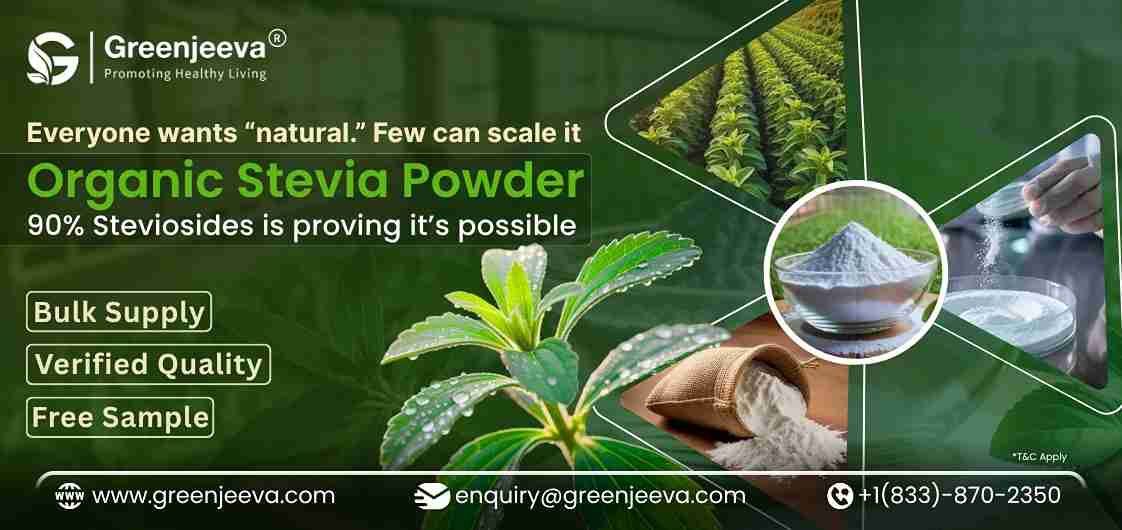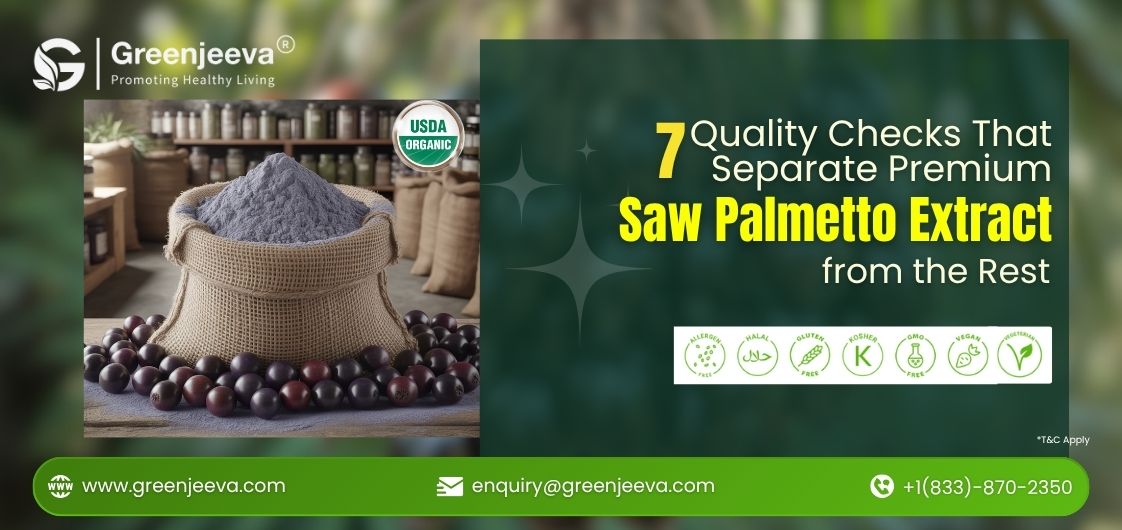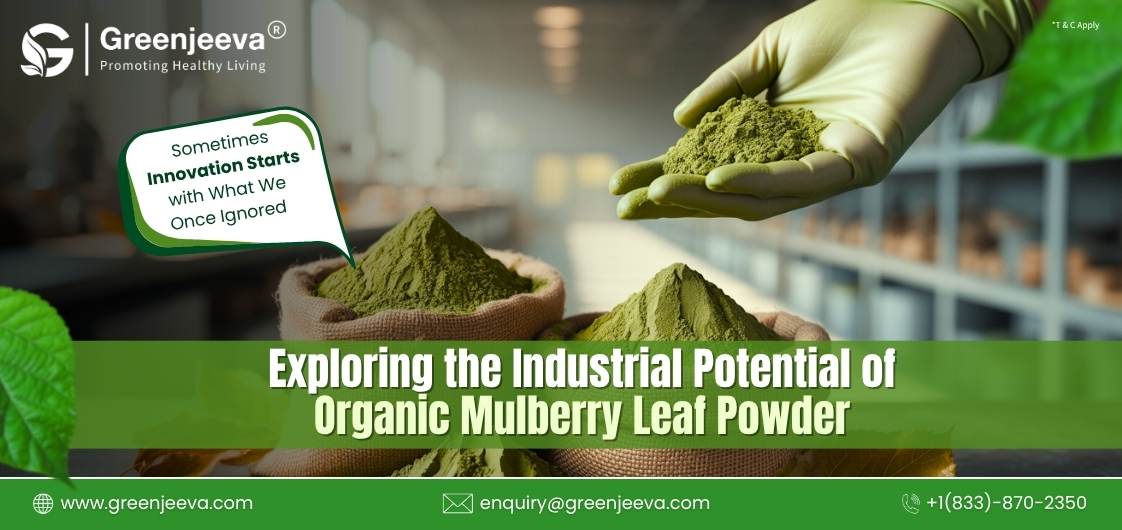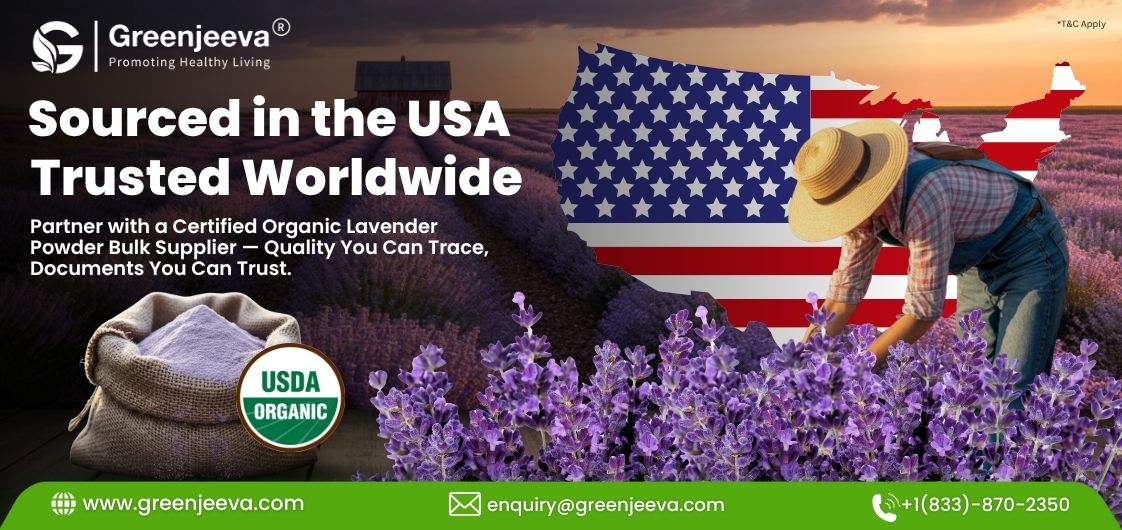How to Reduce Lead Times When Procuring Organic Papaya Leaf Powder in Bulk
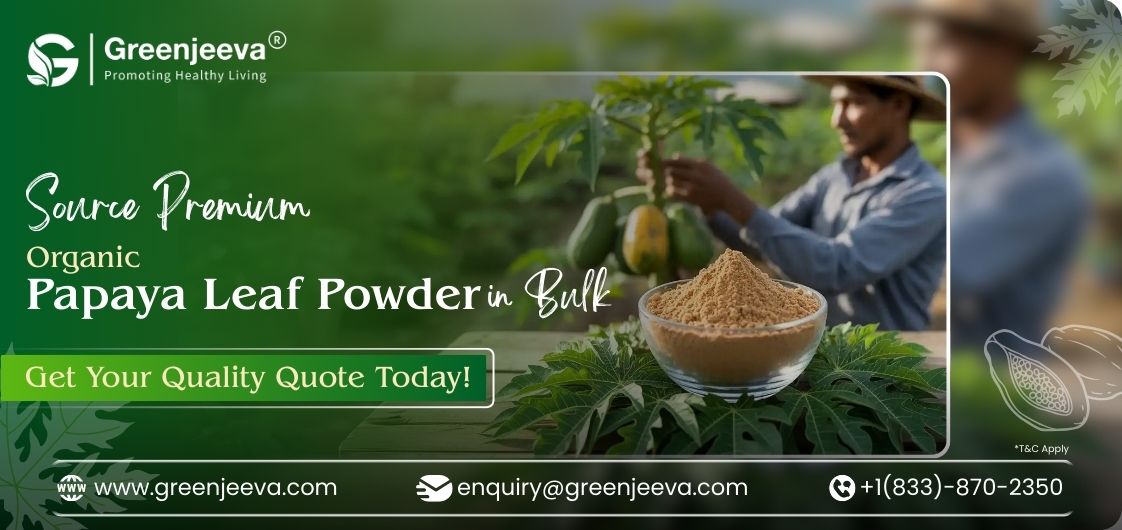
In the nutraceutical ingredients market,lead time is not just a number on a spreadsheet it’s the heartbeat of your production cycle. When an ingredient shipment arrives late, the ripple effects can be costly: missed retail launches, halted production lines, unhappy clients, and lost shelf space to competitors.
For many sourcing managers and formulators, Organic Papaya Leaf Powder has become a high-demand botanical with both functional and clean-label appeal. Its applications in teas, supplements, and wellness blends are expanding rapidly, but so are procurement challenges.
With global supply chains still facing unpredictable delays, buyers are under pressure to reduce lead times without compromising quality. In this blog, we’ll cover:
- The role of Organic Papaya Leaf Powder in the nutraceutical supply chain.
- Quality benchmarks that can help you avoid post-shipment delays.
- Sourcing insights to anticipate and navigate seasonal or logistical bottlenecks.
- Practical procurement strategies to keep your ingredient pipeline moving efficiently.
What is Organic Papaya Leaf Powder in the Context of Bulk Supply?
In B2B nutraceutical sourcing,Organic Papaya Leaf Powder refers to finely milled, dried leaves of Carica papaya cultivated under certified organic conditions free from synthetic pesticides, chemical fertilizers, or GMOs.
Bulk buyers usually specify:
- USDA Organic certified batches to meet clean-label claims.
- Uniform mesh sizes for consistent mixing in supplement, tea, or beverage formulations.
- Moisture-controlled milling to enhance shelf life.
Forms Available:
- Fine-mesh powder for capsules, tablets, sachets.
- Coarser mesh for herbal tea blends.
Global Sourcing Hubs:
- India — leading exporter with well-established organic certification systems.
- Sri Lanka — preferred for small-batch, high-purity leaf production.
- Vietnam & Thailand — emerging with competitive pricing and growing organic capacity.
When working with an Organic Papaya Leaf Powder Bulk Supplier, the form, grade, and origin you choose will directly influence not just your cost per kilogram, but also your lead times, compliance process, and formulation success.
Why Lead Times Can Stretch in Papaya Leaf Powder Procurement
Understanding where delays originate is the first step to preventing them. Common causes include:
- Seasonal Harvest Gaps: While papaya leaves are available year-round, peak quality periods differ by region, which can affect milling schedules.
- Customs Delays: Missing or incomplete USDA Organic documentation can cause hold-ups at ports.
- Overbooked Processing Lines: Smaller suppliers may have limited milling and drying capacity, creating bottlenecks during high-demand seasons.
- Transport & Freight Issues: Shipping route changes, port congestion, or container shortages can add weeks to delivery.
Quality Benchmarks for Bulk Organic Papaya Leaf Powder
Choosing a supplier with strict quality systems is a lead-time advantage because it prevents costly retesting or batch rejections.
Key Technical Specs:
- Purity:100% papaya leaf — no fillers, dyes, or anti-caking agents.
- Mesh Size: Commonly 60–100 mesh for nutraceutical uses.
- Moisture Content:≤10% for stability during transit and storage.
Certifications That Matter:
- USDA Organic — ensures compliance with organic labeling.
- GMP, ISO, HACCP — confirms consistent manufacturing standards.
- Kosher & Halal — expands export and product eligibility.
- Non-GMO — meets consumer preference for natural products.
Testing & Validation:
Microbial profile (E. coli, Salmonella, total plate count).
Heavy metals screening (lead, arsenic, cadmium, mercury).
Pesticide residue testing for organic integrity.
A USDA Organic Papaya Leaf Powder Supplier who integrates these processes can save you days even weeks in clearing regulatory checks.
Sourcing Insights & Supply Chain Transparency
Understand Regional Crop Cycles
In India, the best harvest period is post-monsoon, when leaves have lower moisture content. Aligning your orders with these peak windows ensures higher quality and faster drying turnaround.
Choose Suppliers with Year-Round Inventory
A supplier who holds buffer stock in climate-controlled facilities can dispatch immediately, bypassing the need to wait for a fresh harvest batch.
Demand Traceability Systems
Modern buyers, especially those sourcing clean label papaya leaf powder for formulators, prefer suppliers who track product from farm to final packaging. Batch-level traceability speeds up quality verification during customs clearance.
Leverage Local Logistics Strengths
Some regions have more efficient export hubs and shorter inland transit times. For example, sourcing from South India via Chennai port often reduces freight delays compared to more congested ports.
Applications in Food & Nutraceutical Formulations
Nutraceutical Supplements:
- Capsules and tablets for herbal blends.
- Single-ingredient powdered supplements in sachets.
Functional Beverages:
- Instant herbal drink powders.
- Infusion-based wellness drinks.
Fortified Foods:
Herbal nutrition bars.
Botanical seasoning blends for health-forward meal kits.
Demand for Organic Papaya Leaf Powder for nutraceuticals is increasing due to the global clean-label movement and consumer preference for minimally processed botanicals. Brands targeting this niche can justify premium pricing, making speed-to-market even more important.
Bulk Procurement Tips to Reduce Lead Times
Build Supplier Relationships, Not Just Purchase Orders
Suppliers often prioritize long-term partners for limited stock and faster processing. Being a consistent buyer can mean your orders jump the queue.
Pre-Qualify Multiple Vendors
Work with at least two GMP-certified Organic Papaya Leaf Powder Bulk Suppliers in different regions to minimize disruption risk if one region faces weather or political issues.
Place Forecast Orders
Even if you don’t need the full quantity immediately, advance forecasts let suppliers plan production slots for your batches.
Use Pre-Shipment Samples for Quality Approval
Clearing your QA team’s review before the main shipment prevents batch rejections that can add weeks to your lead time.
Optimize Packaging for Transit
Moisture-barrier inner liners with multi-wall kraft or drum packaging minimize inspection delays due to compromised goods.
Factor in Regulatory Paperwork Early
Your supplier should prepare USDA Organic certificates, COAs, and shipping documents at dispatch, not post-arrival.
Common Pitfalls That Increase Lead Times
- Relying on a Single Harvest Window: Leads to seasonal bottlenecks.
- Choosing Price Over Certification: Non-certified batches can be held at customs for testing.
- Underestimating Documentation Needs: Missing import permits or organic verification can cause indefinite holds.
- Not Factoring Freight Volatility: Booking freight too late can mean higher costs and longer transit times.
Case Example: Reducing Lead Time by 30%
A U.S.-based nutraceutical brand sourcing 2 MT of USDA Organic Papaya Leaf Powder faced delays averaging 8 weeks. By shifting to a dual-supplier model, pre-booking shipping slots, and aligning orders with India’s post-monsoon harvest, they cut lead time to 5.5 weeks a 30% improvement. The brand was able to launch their new herbal tea line three weeks ahead of schedule, beating a competitor to market.
Conclusion
For nutraceutical brands, lead time is a competitive edge. By choosing a reliable Organic Papaya Leaf Powder Bulk Supplier, aligning with regional harvest cycles, maintaining dual sourcing options, and enforcing quality and documentation standards, you can keep production schedules on track and deliver products faster.
With the right supply chain strategy,clean label papaya leaf powder for formulators isn’t just another ingredient it’s a growth driver for your product portfolio.


